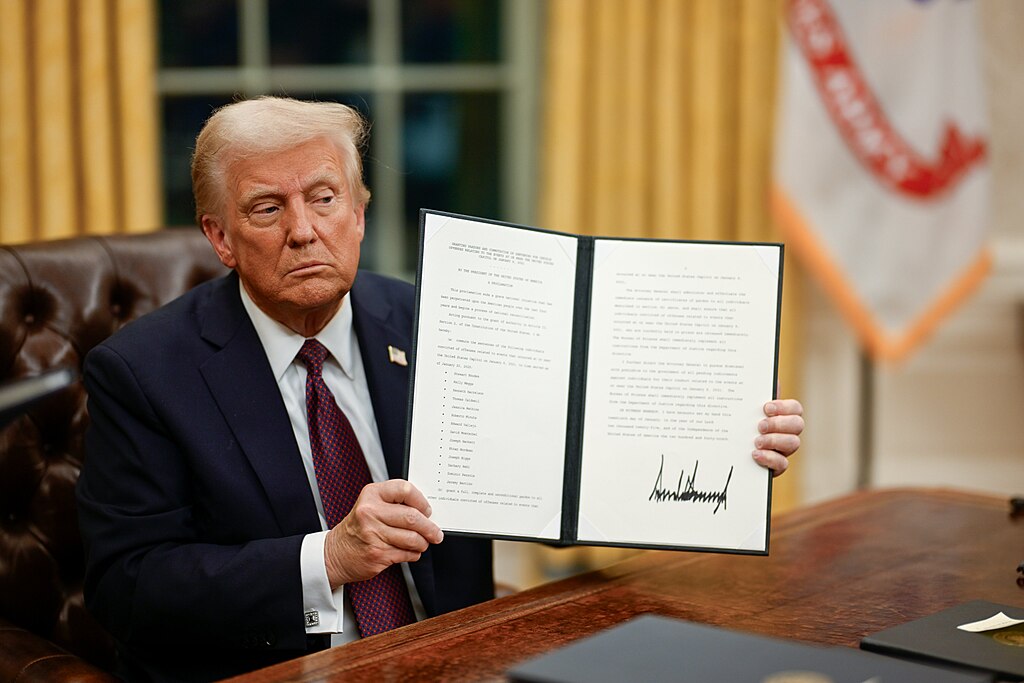The Trump administration, under its broader agenda to overhaul federal bureaucracy, has dismantled diversity, equity, and inclusion (DEI) initiatives across government agencies. In a speech to the World Economic Forum, former President Donald Trump reaffirmed his commitment to a "merit-based" system, calling DEI policies “nonsense.” Key agencies, including the CIA and Federal Reserve, eliminated diversity offices and scrubbed related content from their websites.
The Department of Agriculture removed resources aimed at supporting minority farmers, and the Department of Education shifted its focus away from diversity-related training. Similarly, DEI advocates across government faced suspensions, with offices slated for closure by month’s end.
A memo circulated to federal employees urged them to report colleagues using "coded language" to disguise DEI efforts, warning of consequences for non-compliance. Critics, including civil rights advocates, argue these measures ignore systemic inequities and roll back progress.
The administration also implemented a hiring freeze and reinstated "Schedule F," an executive order enabling the dismissal of thousands of civil servants, replacing them with political appointees. This decision faced backlash from unions and lawmakers, with Senator Tim Kaine decrying the "hatred" toward federal workers.
Furthermore, the National Security Council terminated over 150 staff, while the Justice Department rescinded job offers to law students in its Honors Program. Critics warn these actions undermine government efficiency and equity.
With DEI efforts eliminated, proponents emphasize that persistent income disparities, such as the 63% median Black household income relative to white households, highlight the need for systemic reforms. Meanwhile, the administration remains focused on aligning federal operations with its ideological framework.
This sweeping reshaping of federal policies reflects a significant shift toward a merit-driven, yet controversial, governance model.



 Minnesota Judge Rejects Bid to Halt Trump Immigration Enforcement in Minneapolis
Minnesota Judge Rejects Bid to Halt Trump Immigration Enforcement in Minneapolis  Trump Signs “America First Arms Transfer Strategy” to Prioritize U.S. Weapons Sales
Trump Signs “America First Arms Transfer Strategy” to Prioritize U.S. Weapons Sales  Trump Backs Nexstar–Tegna Merger Amid Shifting U.S. Media Landscape
Trump Backs Nexstar–Tegna Merger Amid Shifting U.S. Media Landscape  Nighttime Shelling Causes Serious Damage in Russia’s Belgorod Region Near Ukraine Border
Nighttime Shelling Causes Serious Damage in Russia’s Belgorod Region Near Ukraine Border  Trump Family Files $10 Billion Lawsuit Over IRS Tax Disclosure
Trump Family Files $10 Billion Lawsuit Over IRS Tax Disclosure  U.S. Justice Department Removes DHS Lawyer After Blunt Remarks in Minnesota Immigration Court
U.S. Justice Department Removes DHS Lawyer After Blunt Remarks in Minnesota Immigration Court  Trump Threatens 50% Tariff on Canadian Aircraft Amid Escalating U.S.-Canada Trade Dispute
Trump Threatens 50% Tariff on Canadian Aircraft Amid Escalating U.S.-Canada Trade Dispute  RFK Jr. Overhauls Federal Autism Panel, Sparking Medical Community Backlash
RFK Jr. Overhauls Federal Autism Panel, Sparking Medical Community Backlash  China Approves First Import Batch of Nvidia H200 AI Chips Amid Strategic Shift
China Approves First Import Batch of Nvidia H200 AI Chips Amid Strategic Shift  U.S.-India Trade Framework Signals Major Shift in Tariffs, Energy, and Supply Chains
U.S.-India Trade Framework Signals Major Shift in Tariffs, Energy, and Supply Chains  Trump Lifts 25% Tariff on Indian Goods in Strategic U.S.–India Trade and Energy Deal
Trump Lifts 25% Tariff on Indian Goods in Strategic U.S.–India Trade and Energy Deal  Missouri Judge Dismisses Lawsuit Challenging Starbucks’ Diversity and Inclusion Policies
Missouri Judge Dismisses Lawsuit Challenging Starbucks’ Diversity and Inclusion Policies  Faith Leaders Arrested on Capitol Hill During Protest Against Trump Immigration Policies and ICE Funding
Faith Leaders Arrested on Capitol Hill During Protest Against Trump Immigration Policies and ICE Funding  Trump Administration Expands Global Gag Rule, Restricting U.S. Foreign Aid to Diversity and Gender Programs
Trump Administration Expands Global Gag Rule, Restricting U.S. Foreign Aid to Diversity and Gender Programs  Panama Supreme Court Voids CK Hutchison Port Concessions, Raising Geopolitical and Trade Concerns
Panama Supreme Court Voids CK Hutchison Port Concessions, Raising Geopolitical and Trade Concerns  Jack Lang Resigns as Head of Arab World Institute Amid Epstein Controversy
Jack Lang Resigns as Head of Arab World Institute Amid Epstein Controversy  Netanyahu to Meet Trump in Washington as Iran Nuclear Talks Intensify
Netanyahu to Meet Trump in Washington as Iran Nuclear Talks Intensify 































